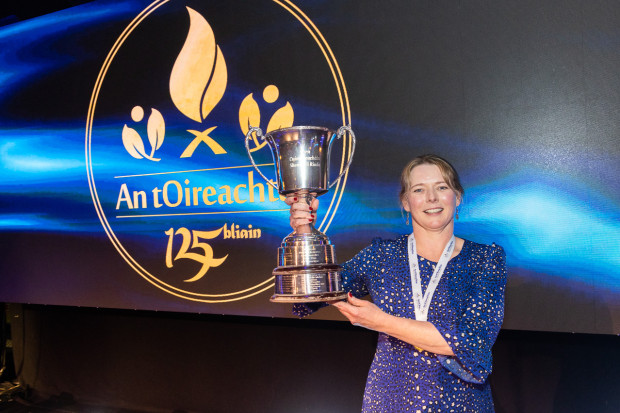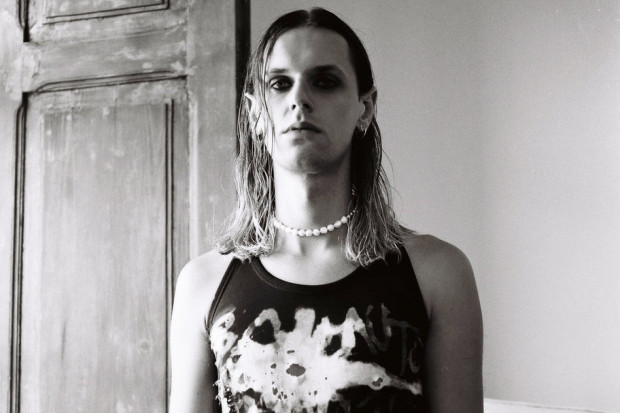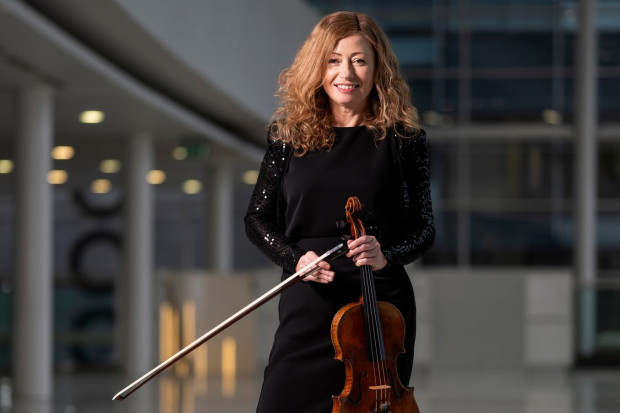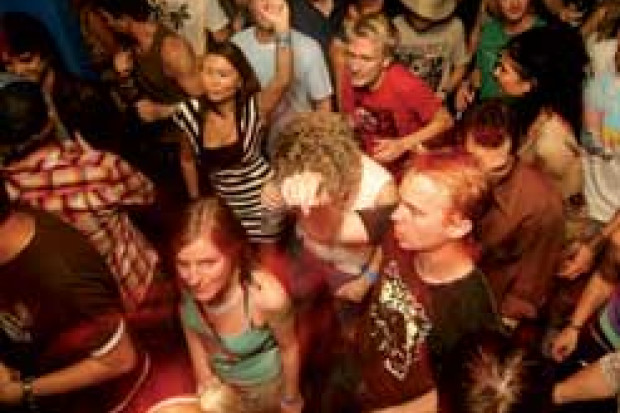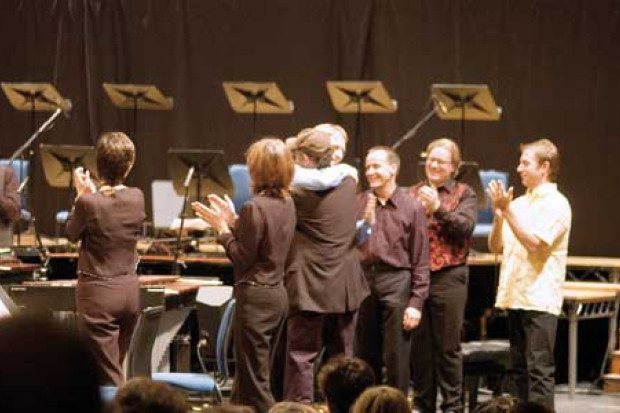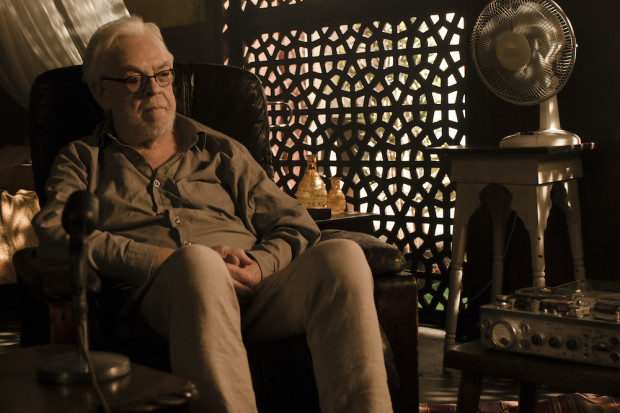
Where Noel Hill Meets Jennifer Walshe
I tend to take pictures quickly at concerts – I’m concerned that I may miss something, and I also feel a little self-conscious – so they generally don’t turn out well. Such was the case at the Session with the Pipers concert in the Cobblestone at the beginning of March. The concertina player Noel Hill’s performance was exceptional; I knew I wanted to capture it; I took a hurried snap. Such dark, grainy, blurred mobile phone pictures are becoming my personal diary of the music I hear.
Later I realised I hadn’t taken a picture at all, but rather I had started a video and then put it in my coat pocket. So I have a brief flash of Hill and then darkness, accompanied by a muffled minute of the jig ‘Banish Misfortune’ followed by the Conamara song ‘Bean Pháidín’ played as a jig.
This brief fragment, however, reminded me why I found the performance so arresting. Just as you become drawn into the melody of a tune by Hill’s dexterity, and the chipping-chisel-like rhythm, he inserts millisecond breaks that create a fraction of apprehension in the listener, as if he was going to take something from you, indeed, as if we were all going to lose something.
It is as if the chisel had momentarily slipped off the block he was working on. They are quasi-abrupt carving motions, like a blowing away of the dust to reveal a new line of expression and investigation, a scrape across the rock to check a dimension; a moment of mystery for the listener. Hill does it again and again, creating something between anxiety and excitement.
It compels you to listen closer. With each micro-pause, he seems to be boring deeper into the music, and so you, too, end up digging deeper, considering the culture and history behind it, the geography of where it is coming from, the world that bore these sounds. And then, when he breaks, it strikes you: are we losing this music? How can this richness survive in the world as it is developing?
Unicorn, AK-47, celebrity dog
Hill was still on my mind when I heard the composer Jennifer Walshe perform at the New Music Dublin festival last weekend.
Walshe, too, holds you still in your seat in the way she presents our culture back to us. But the culture Walshe presents is not necessarily one seeking transport from the past, but rather the complete kaleidoscope of contesting cultures that is our contemporary world.
Performing to a soundtrack, Walshe delivers a series of episodes of dialogue and mixed phrases. Sometimes it is delivered deadpan, employing various accents, juxtaposing divergent imagery – the robot, the unicorn, the AK-47, the celebrity dog. At other times, it is manic, mixing fragments of Irish and American accents, Dublin slang, words from the Irish language, all performed with incredible stamina and focus, switching between phrases, and again, between each one, one can hear the momentary gap, when one wonders, as when listening to Hill, if it is actually all just going to fall apart. It never does.
Somewhere between the music of Noel Hill, which embodies a journey to seek safe passage for what has deeply defined our culture over centuries, and Jennifer Walshe’s work, which takes an eyes-wide-open frontline offensive to the culture that is coming down the track, is where we are.
Both performers provoke so much meditation on the culture that surrounds us, it is difficult for me not to mention that these two performances were preceded by two major national protests in February regarding a critical, aching part of Irish culture: the Irish language.
After thousands of years of continuous use on the island as a community language, the last remaining Irish-speaking areas find themselves under interminable pressure in a changing world. But these artists make one rethink the idea that everything we value must meet a straight line pointing downwards. Culture is not a constant, there is nothing inevitable about its future – and we are all players within it.
Whatever we choose to be
Hill, like Walshe, is an innovator. The music he plays on the concertina, an instrument that had by the 1960s declined almost everywhere in Ireland but among a small number of players in County Clare, would have been almost unimaginable fifty years ago. When a new time arrived that was more favourable to traditional music, suddenly it was in the ascendant again.
And for all the distance Walshe covers and the originality of her work, she, like Hill, also reinvents Irish culture. Her recent work Dordán (meaning a ‘deep sound’ or ‘droning’) premiered at the Huddersfield Contemporary Music Festival last November. It is a beautifully unique meditation on cultural expression in Ireland. It combines archive footage – everything from emigration to street scenes to bare-fist fighting – in a story of Irish midland avant-garde artistic experimentalism.
Dordán uses flag-waving, physical actions, recitation. In one passage, the five members of the Quiet Music Ensemble play party horns incessantly to footage of Irish dancers interspersed with disco dancing, and with a text that focuses on the trance-like qualities of the art-form. For the thirty-five-minute performance, Irish culture is literally whatever we choose it to be.
The shots of loss that I hear in Hill’s music, and the combativeness that one hears in Walshe, are reminders that the radical reinvention of our culture continues to take place all around us – and that I should be taking more of those dark, grainy, mobile phone photos.
Published on 14 March 2014
Toner Quinn is Editor of the Journal of Music. His new book, What Ireland Can Teach the World About Music, is available here. Toner will be giving a lecture exploring some of the ideas in the book on Saturday 11 May 2024 at 3pm at Farmleigh House in Dublin. For booking, visit https://bit.ly/3x2yCL8.










